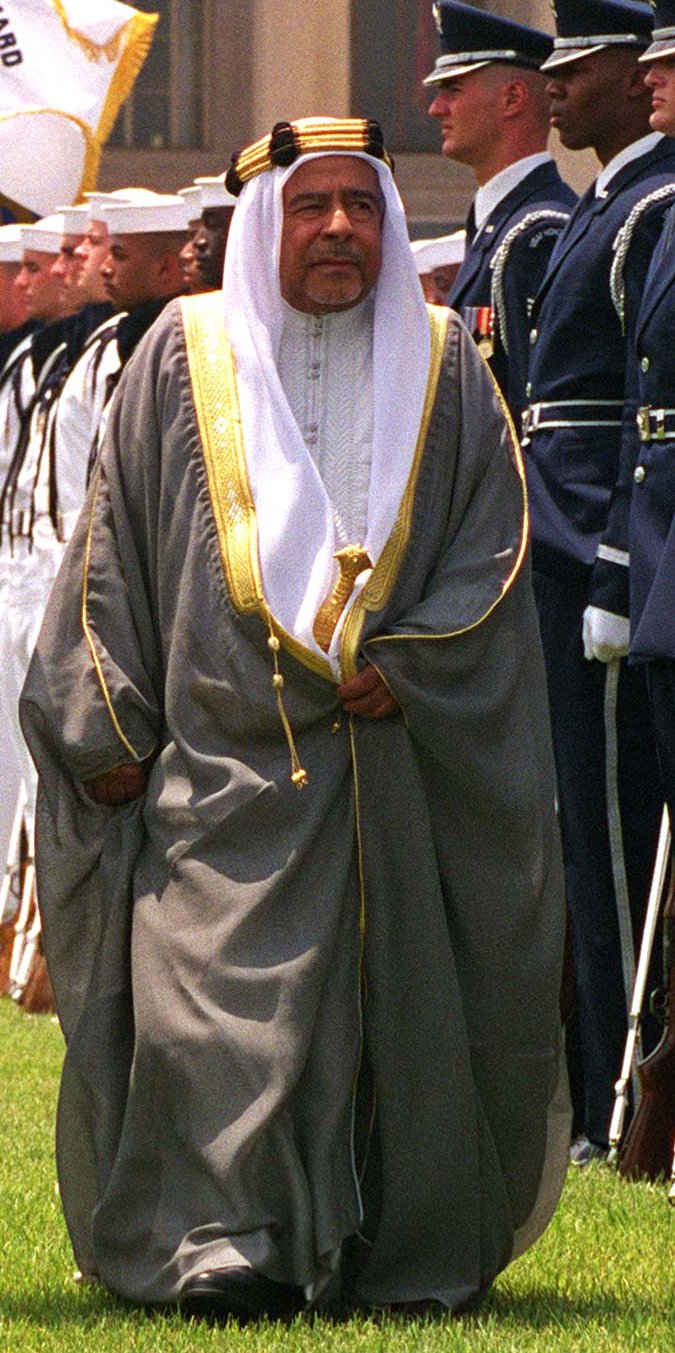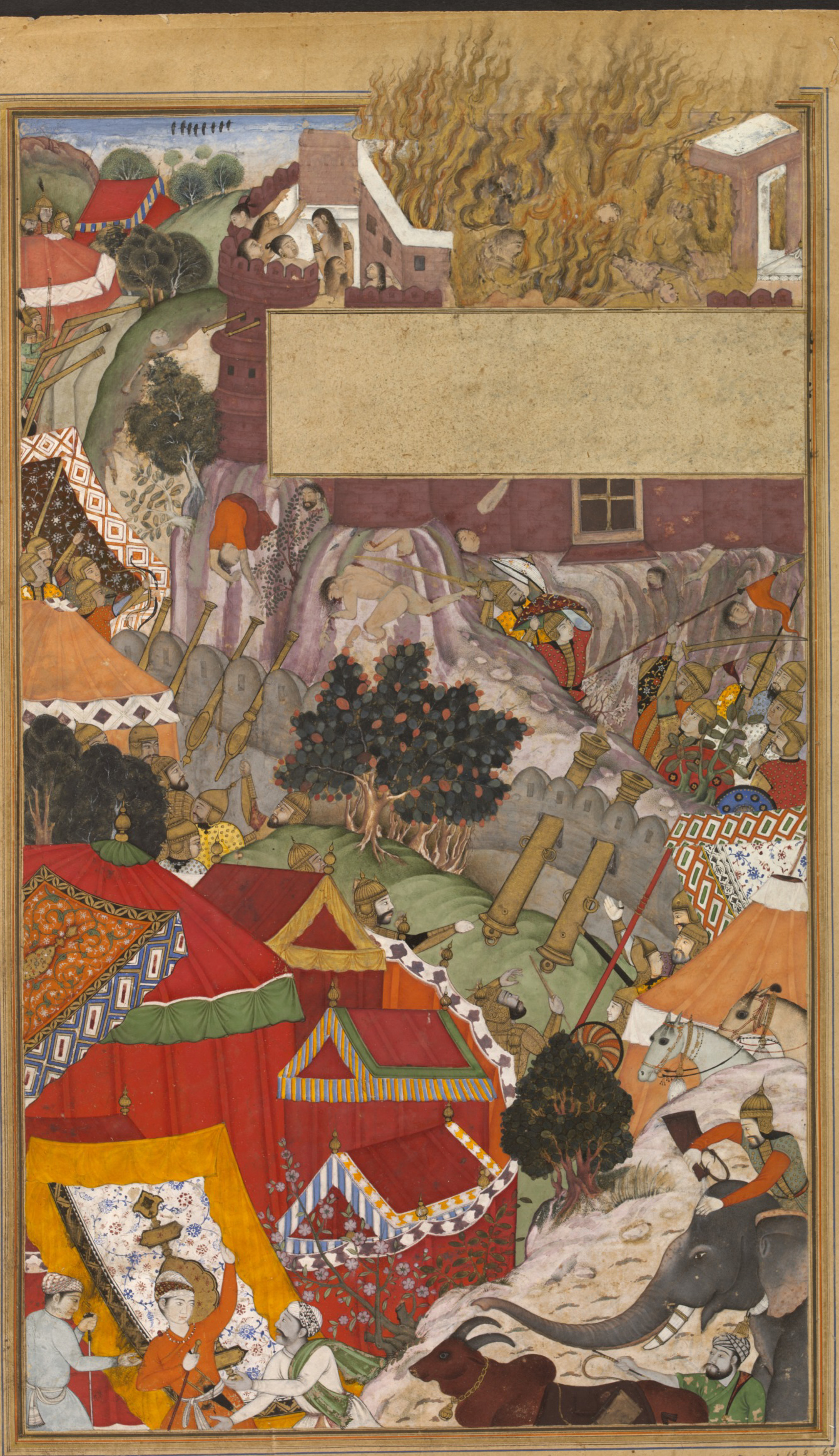|
Bahraini Uprising Of 2011
The 2011 Bahraini uprising was a series of anti-government protests in Bahrain led by the Shia-dominant and some Sunni minority Bahraini opposition from 2011 until 2014. The protests were inspired by the unrest of the 2011 Arab Spring and protests in Tunisia and Egypt and escalated to daily clashes after the Bahraini government repressed the revolt with the support of the Gulf Cooperation Council and Peninsula Shield Force. The Bahraini protests were a series of demonstrations, amounting to a sustained campaign of non-violent civil disobedience and some violent resistance in the Persian Gulf country of Bahrain. As part of the revolutionary wave of protests in the Middle East and North Africa following the self-immolation of Mohamed Bouazizi in Tunisia, the Bahraini protests were initially aimed at achieving greater political freedom and equality for the 70% Shia population. This expanded to a call to end the monarchy of Hamad bin Isa Al Khalifa following a deadly night ... [...More Info...] [...Related Items...] OR: [Wikipedia] [Google] [Baidu] |
Arab Spring
The Arab Spring ( ar, الربيع العربي) was a series of anti-government protests, uprisings and armed rebellions that spread across much of the Arab world in the early 2010s. It began in Tunisia in response to corruption and economic stagnation. From Tunisia, the protests then spread to five other countries: Libya, Egypt, Yemen, Syria and Bahrain. Rulers were deposed (Zine El Abidine Ben Ali, Muammar Gaddafi, Hosni Mubarak, Ali Abdullah Saleh) or major uprisings and social violence occurred including riots, civil wars, or insurgencies. Sustained street demonstrations took place in Morocco, Iraq, Algeria, Lebanon, Jordan, Kuwait, Oman and Sudan. Minor protests took place in Djibouti, Mauritania, Palestine, Saudi Arabia and the Moroccan-occupied Western Sahara. A major slogan of the demonstrators in the Arab world is '' ash-shaʻb yurīd isqāṭ an-niẓām!'' (). The importance of external factors versus internal factors to the protests' spread and success ... [...More Info...] [...Related Items...] OR: [Wikipedia] [Google] [Baidu] |
Human Rights In Bahrain
Bahrains record on human rights has been described by Human Rights Watch as "dismal", and having "deteriorated sharply in the latter half of 2010". Their subsequent report in 2020 noted that the human rights situation in the country had not improved. The government of Bahrain has marginalized the native Shia Muslim population. Torture and forced disappearances are common in Bahrain. The crackdown on protesters during the 2011 Arab Spring brought further human rights complaints, including the destruction of dozens of long-standing Shia mosques. The Bahrain Independent Commission of Inquiry was established on 29 June 2011 by King Hamad bin Isa Al Khalifa to assess the incidents that occurred in the Kingdom during the period of unrest in February and March 2011 and the consequences of these events. The report was released on 23 November of that year and confirmed that there were some incidents of physical and psychological abuse on detainees. It has been criticized for not disclosin ... [...More Info...] [...Related Items...] OR: [Wikipedia] [Google] [Baidu] |
Bahraini Opposition
The Bahraini opposition refers to a group of political groups who are opposed to the Cabinet of Bahrain government and the ruling monarch of the Sunni House of Khalifa. Currently, the Bahraini opposition can be divided into the officially registered political parties, who demand reforms to the current political system, and the unregistered opposition groups. Most of the opposition is comprised from the majority Shia population of Bahrain. The alliance of registered opposition parties consists of: *Al Wefaq National Islamic Society (banned) *National Democratic Action Society (Wa'ad, banned) *Progressive Democratic Tribune *Islamic Action Society (Amal, banned) *Al Wahdawi *Al Ekha *Nationalist Democratic Assembly The unlicensed opposition consists of: *Haq Movement *February 14 Youth Coalition *Al Wafa' Islamic Movement *Bahrain Freedom Movement *National Liberation Front – Bahrain *Al-Ashtar Brigades *Al-Mukhtar Brigades Since the 2011 Bahraini uprising, all opposition parties ... [...More Info...] [...Related Items...] OR: [Wikipedia] [Google] [Baidu] |
France 24
France 24 ( in French) is a French state-owned international news television network based in Paris. Its channels broadcast in French, English, Arabic, and Spanish and are aimed at the overseas market. Based in the Paris suburb of Issy-les-Moulineaux, the service started on 6 December 2006. It is aimed at a worldwide market and is generally broadcast by pay television providers around the world, but additionally, in 2010, France 24 began broadcasting online through its own iPhone and Android apps. It is a provider of live streaming world news which can be viewed via its website, YouTube, and various mobile devices and digital media players. The stated mission of the channels is to "provide a global public service and a common editorial stance". Since 2008 the channel has been wholly owned by the French government, via its holding company France Médias Monde, having bought out the minority share of the former partners: Groupe TF1 and France Télévisions. The budget is a ... [...More Info...] [...Related Items...] OR: [Wikipedia] [Google] [Baidu] |
Agence France-Presse
Agence France-Presse (AFP) is a French international news agency headquartered in Paris, France. Founded in 1835 as Havas, it is the world's oldest news agency. AFP has regional headquarters in Nicosia, Montevideo, Hong Kong and Washington, D.C., and news bureaus in 151 countries in 201 locations. AFP transmits stories, videos, photos and graphics in French, English, Arabic, Portuguese, Spanish, and German. History Agence France-Presse has its origins in the Agence Havas, founded in 1835 in Paris by Charles-Louis Havas, making it the world's oldest news service. The agency pioneered the collection and dissemination of news as a commodity, and had established itself as a fully global concern by the late 19th century. Two Havas employees, Paul Julius Reuter and Bernhard Wolff, set up their own news agencies in London and Berlin respectively. In 1940, when German forces occupied France during World War II, the news agency was taken over by the authorities and renamed "Offi ... [...More Info...] [...Related Items...] OR: [Wikipedia] [Google] [Baidu] |
Bahrain National Dialogue
The Bahrain National Dialogue was an initiative instigated by King Hamad bin Isa Al Khalifa to promote reform and encourage discussion on the governance of Bahrain. The Dialogue began on 2 July 2011 and participants from over 300 organisations from across the Bahraini political spectrum are able to voice their concerns and thoughts freely and without being subject to conditions. The Dialogue is chaired by Parliament Speaker Khalifa bin Ahmed Al Dhahrani. The National Dialogue is part of the King’s response to the uprising that started in February 2011 and was running on parallel to the Bahrain Independent Commission of Inquiry, which was looking into the details of the events and the government response to them. Out of 300 participants, Al Wefaq, Bahrain's main opposition party had only 5 seats and pulled from the dialogue 2 weeks after it started and about 1 week before it ended. In total the opposition parties had only 25 out of 300 seats, according to Bahraini human rig ... [...More Info...] [...Related Items...] OR: [Wikipedia] [Google] [Baidu] |
Bahrain Independent Commission Of Inquiry
The Bahrain Independent Commission of Inquiry (BICI), also known locally in Bahrain as the Bassiouni Commission, was established by the King of Bahrain on 29 June 2011''Bahrain News Agency''" HM King Hamad Sets up Royal Independent Investigation commission " 'International Reaction' ''Bahrain News Agency'', 29 June 2011 tasked with looking into the incidents that occurred during the period of unrest in Bahrain in February and March 2011 and the consequences of these events. The commission released a 500-page report 23 November 2011, which took 9,000 testimonies, offered an extensive chronology of events, documented 46 deaths, 559 allegations of torture, and more than 4,000 cases of employees dismissed for participating in protests. The report criticized the security forces for many instances when "force and firearms were used in an excessive manner that was, on many occasions, unnecessary, disproportionate, and indiscriminate;" and found that certain abuses, such as destruction of ... [...More Info...] [...Related Items...] OR: [Wikipedia] [Google] [Baidu] |
Al-Wasat (Bahraini Newspaper)
''Al-Wasat'' (), also ''Alwasat'', was an Arabic-language daily newspaper in Manama, Bahrain. ''Al-Wasat'' was generally regarded as the only independent newspaper in Bahrain. The newspaper ran for 15 years, during which is provided reporting unique to Bahrain. The government of Bahrain forcibly closed the newspaper on 4 June 2017, in a move which Amnesty International termed an "all-out campaign to end independent reporting". History and profile ''Al-Wasat'' was established in 2002. The newspaper was established after the early reforms adopted by King Hamad bin Isa. Allowing a key oppositional figure to establish this newspaper was seen as a key event in the opening up of society. Before ''Al-Wasat'' was established, Bahrain had only two Arabic newspapers, ''Akhbar Al Khaleej'' and '' Al Ayam'', both of which were viewed as extremely pro-government. Its founders are Mansoor Al-Jamri and leading personalities from the Bahraini private sector. Al-Jamri was the editor-in-chief. ... [...More Info...] [...Related Items...] OR: [Wikipedia] [Google] [Baidu] |
Self-immolation
The term self-immolation broadly refers to acts of altruistic suicide, otherwise the giving up of one's body in an act of sacrifice. However, it most often refers specifically to autocremation, the act of sacrificing oneself by setting oneself on fire and burning to death. It is typically used for political or religious reasons, often as a form of non-violent protest or in acts of martyrdom. It has a centuries-long recognition as the most extreme form of protest possible by humankind. Etymology The English word '' immolation'' originally meant (1534) "killing a sacrificial victim; sacrifice" and came to figuratively mean (1690) "destruction, especially by fire". Its etymology was from Latin "to sprinkle with sacrificial meal ( mola salsa); to sacrifice" in ancient Roman religion. '' Self-immolation'' was first recorded in Lady Morgan's ''France'' (1817). Effects Self-immolators frequently use accelerants before igniting themselves. This, combined with the self-immolators' refu ... [...More Info...] [...Related Items...] OR: [Wikipedia] [Google] [Baidu] |
Nonviolent Revolution
A nonviolent revolution is a revolution conducted primarily by unarmed civilians using tactics of civil resistance, including various forms of nonviolent protest, to bring about the departure of governments seen as entrenched and authoritarian without the use or threat of violence. While many campaigns of civil resistance are intended for much more limited goals than revolution, generally a nonviolent revolution is characterized by simultaneous advocacy of democracy, human rights, and national independence in the country concerned. An effective campaign of civil resistance, and even the achievement of a nonviolent revolution, may be possible in a particular case despite the government in power taking brutal measures against protesters. The commonly held belief that most revolutions that have happened in dictatorial regimes were bloody or violent uprisings is not borne out by historical analysis. Nonviolent Revolutions came to the international forefront in the 20th century by th ... [...More Info...] [...Related Items...] OR: [Wikipedia] [Google] [Baidu] |
General Strike
A general strike refers to a strike action in which participants cease all economic activity, such as working, to strengthen the bargaining position of a trade union or achieve a common social or political goal. They are organised by large coalitions of political, social, and labour organizations and may also include rallies, marches, boycotts, civil disobedience, non-payment of taxes, and other forms of direct or indirect action. Additionally, general strikes might exclude care workers, such as teachers, doctors, and nurses. Historically, the term general strike has referred primarily to solidarity action, which is a multi-sector strike that is organised by trade unions who strike together in order to force pressure on employers to begin negotiations or offer more favourable terms to the strikers; though not all strikers may have a material interest in the negotiations, they all have a material interest in maintaining and strengthening the collective efficacy of strikes as a ... [...More Info...] [...Related Items...] OR: [Wikipedia] [Google] [Baidu] |




